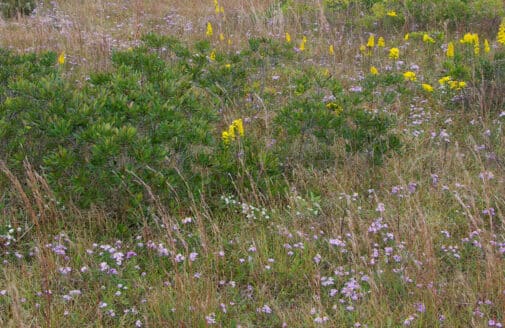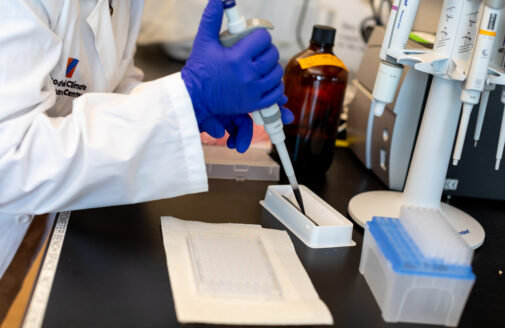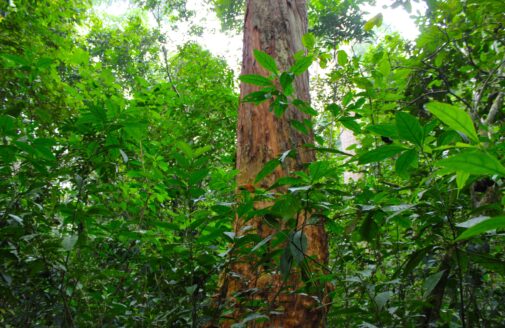Despite COVID-19 limitations, scientists advance research
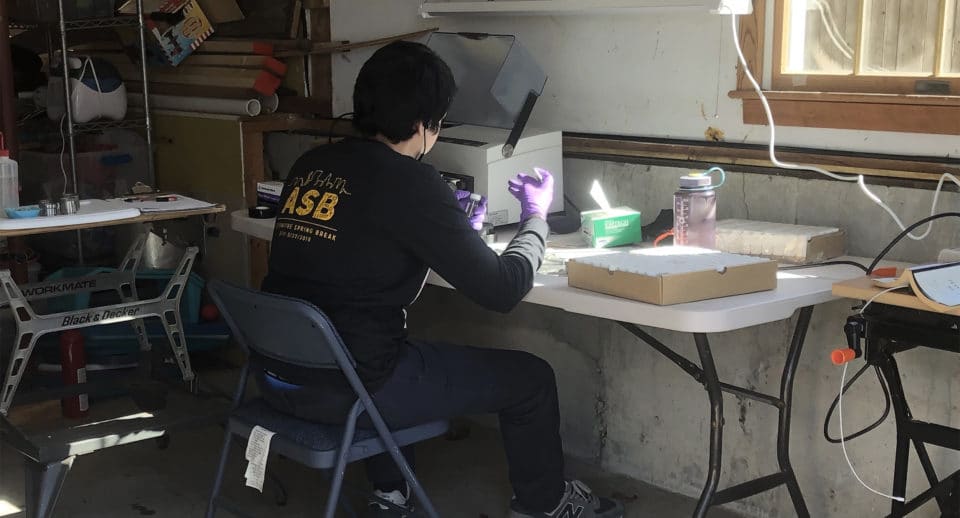
Above: Research Assistant Gabe Duran in his home laboratory
Woodwell Climate Research Center adapted fieldwork plans for summer 2020 to ensure the safety of scientists and members of local communities. Travel has been restricted and lab use has been limited, but work continues. In the past few months, Woodwell Climate researchers have developed creative ways to advance their science under unprecedented conditions.
“The biggest direct impact on my work has been from the lab shutdown,” said Dr. Jon Sanderman. “We made do, with research assistant Gabe Duran continuing to process soil samples from home.”
The Falmouth campus has partially reopened following guidelines from the state of Massachusetts, says COVID Safety Director Lindsay Scott. The building is capped at half-capacity and common areas have been closed. Essential staff may enter after completing a virtual training conducted by Scott, who handles the campus scheduling.
Scientists that choose to conduct fieldwork in some capacity also must send their protocols to Scott for approval prior to stepping out into the field. While fieldwork can often be conducted in a socially-distant manner, tasks such as equipment hand-off must be reevaluated with pandemic guidelines in mind.
In late August, Dr. Marcia Macedo and Kathleen Savage plan to travel to Howland Forest in Maine to measure greenhouse gas fluxes from vegetation. Both scientists will be taking extra precautions to ensure the research meets safety standards, traveling separately and sampling six feet apart.
Macedo, Savage, and Paul Lefebvre have already gotten a taste of socially distant fieldwork. They recently took to local wetlands on Cape Cod to test floating flux chambers that enable researchers to measure the exchange of carbon dioxide between air and water. The team originally planned to deploy these in the Congo and Brazil. After making necessary adjustments to the equipment, Savage instead has mailed materials to collaborators in the Democratic Republic of the Congo along with instructional videos for deployment and sampling. This work is supported by the Fund for Climate Solutions.
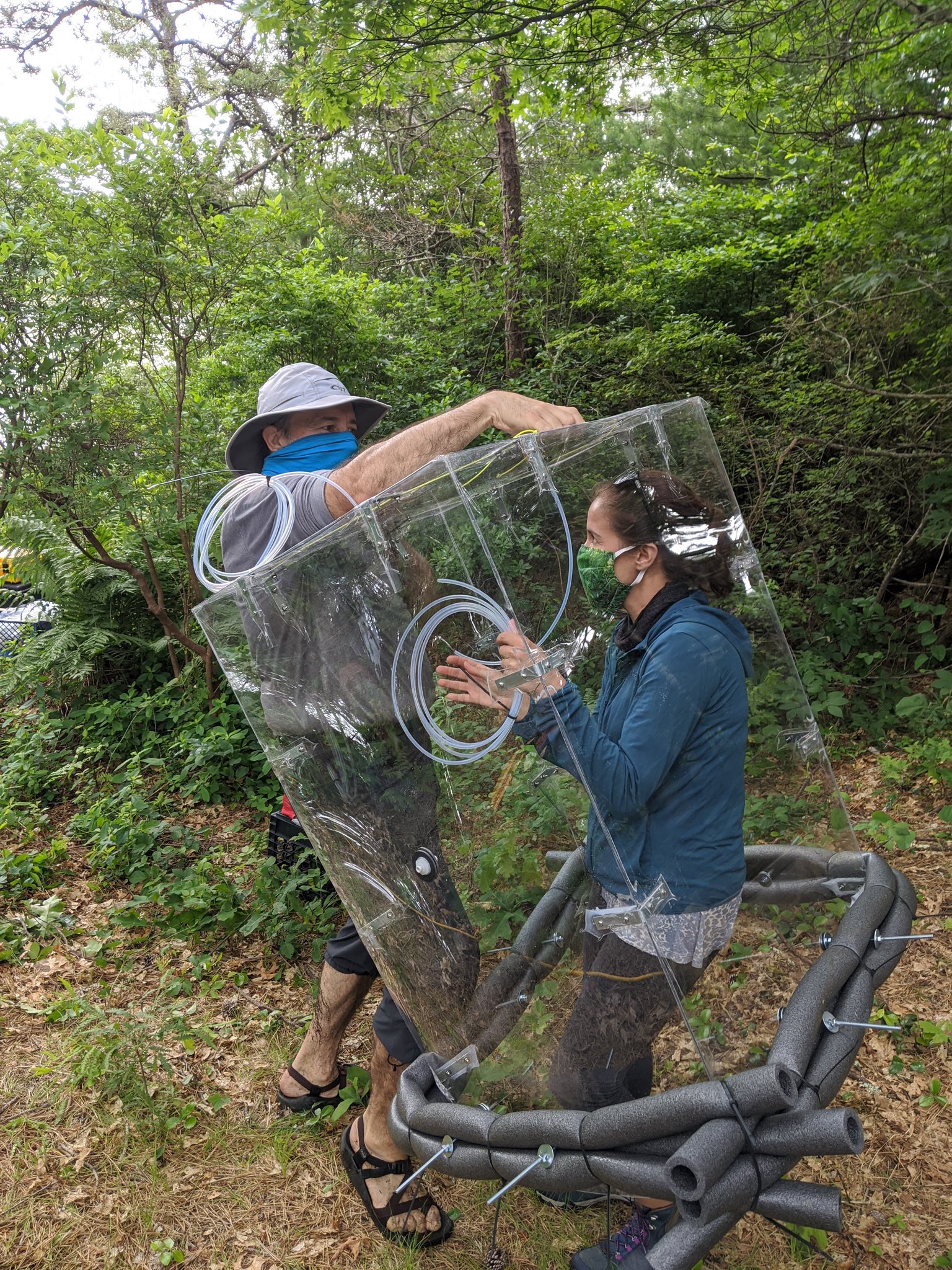
Above: Paul Lefebvre and Marcia Macedo
Fieldwork conducted by the Arctic team has been placed on hold to prevent the spread of disease to remote communities in Alaska and Canada. However, Woodwell Climate scientists have found other ways to conduct research and lend climate expertise. For example, Woodwell Climate revamped this year’s Polaris Project to be primarily online, while offering this year’s students a chance to make the trip to Alaska in 2021.
Analysis of high resolution imagery in the Arctic has led to discoveries with impacts far beyond summer 2020. For example, Dr. Anna Liljedahl’s use of satellite remote sensing has identified a melting glacier in Alaska’s Barry Arm that raises the risk of a tsunami-generating landslide. While remote sensing and computer modeling have always been widely used by Woodwell Climate researchers, they have become even more prevalent.
“My pre-COVID plans had me in the Yukon-Kuskokwim delta in Alaska for much of this summer, where I’d intended to work with a small team collecting data about the impacts of permafrost thaw and wildfire on carbon cycling,” said Dr. Rachael Treharne. “Now, I’m taking a completely different approach to some similar questions, using a mathematical model to estimate how carbon released from fire and permafrost across the Arctic could impact our ability to meet the Paris Agreement temperature targets. It’s been quite a learning curve but also a really refreshing opportunity to learn some completely new skills that I’ll be able to build into my research in the future.”
Woodwell Climate scientists have also been using this time to plan for safer and better fieldwork practices in the long term. Dr. Melissa Ward and Dr. Liljedahl will be leading a working group to establish a robust set of guidelines for Arctic fieldwork protocols going forward.





